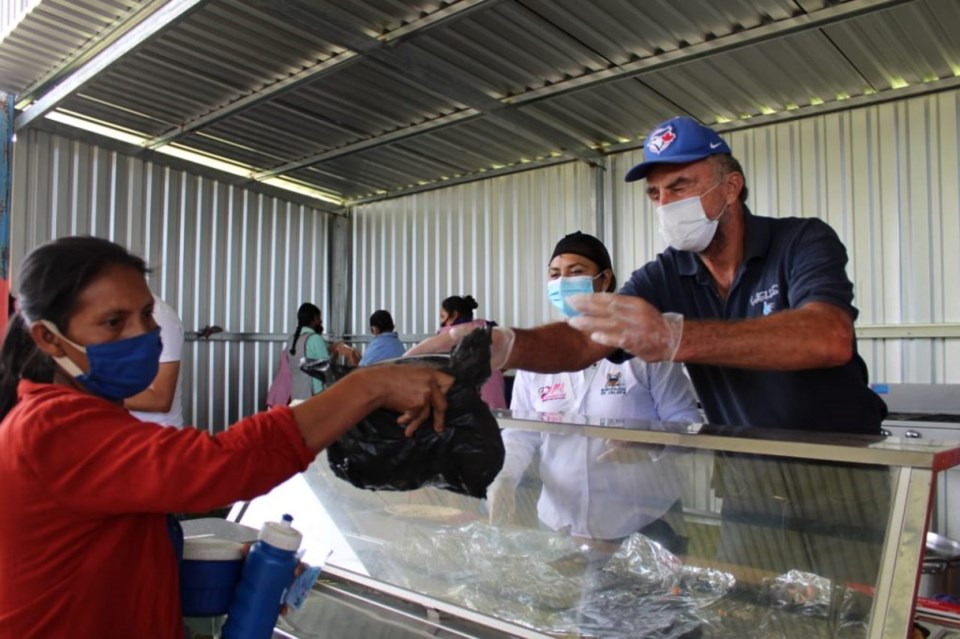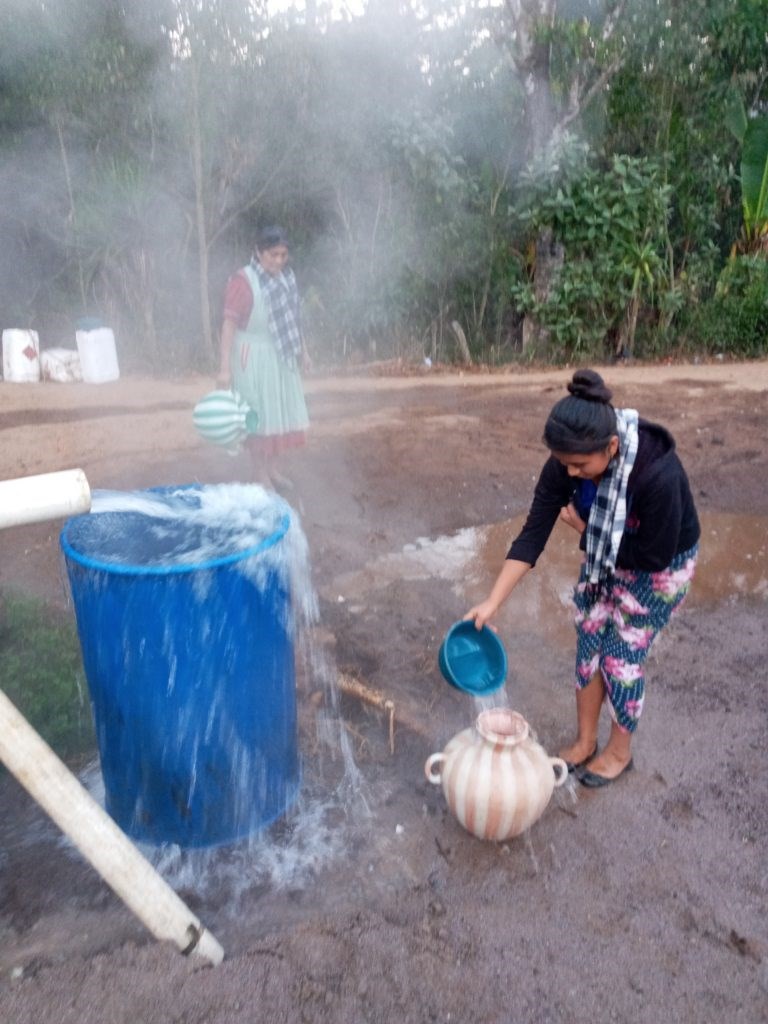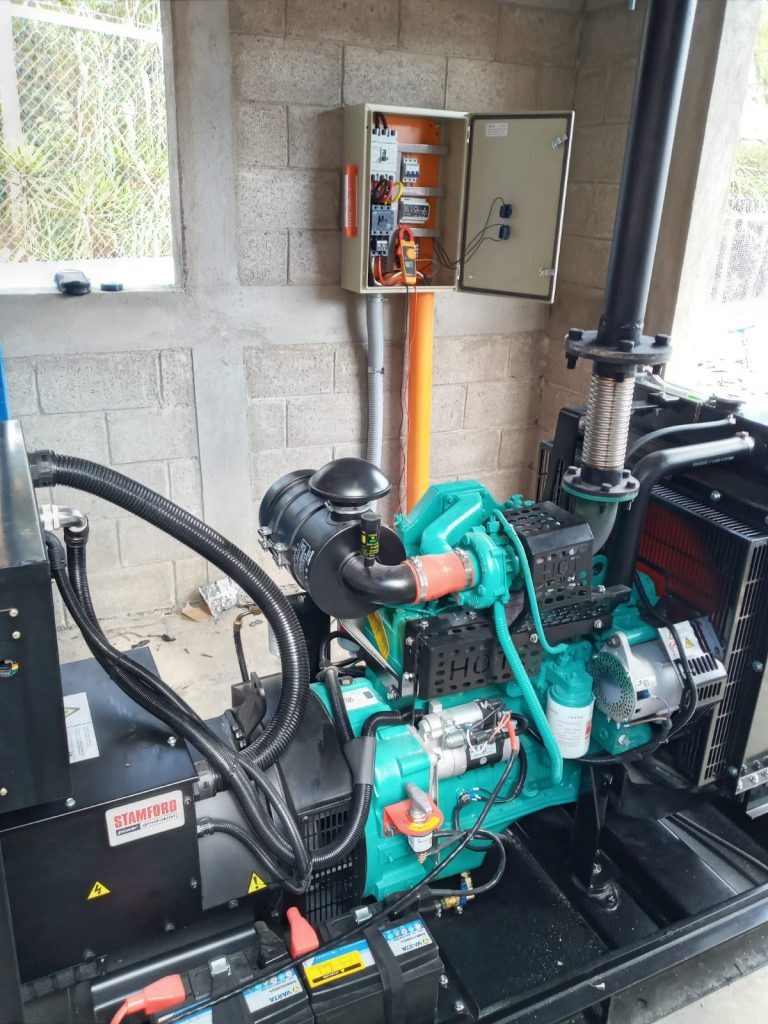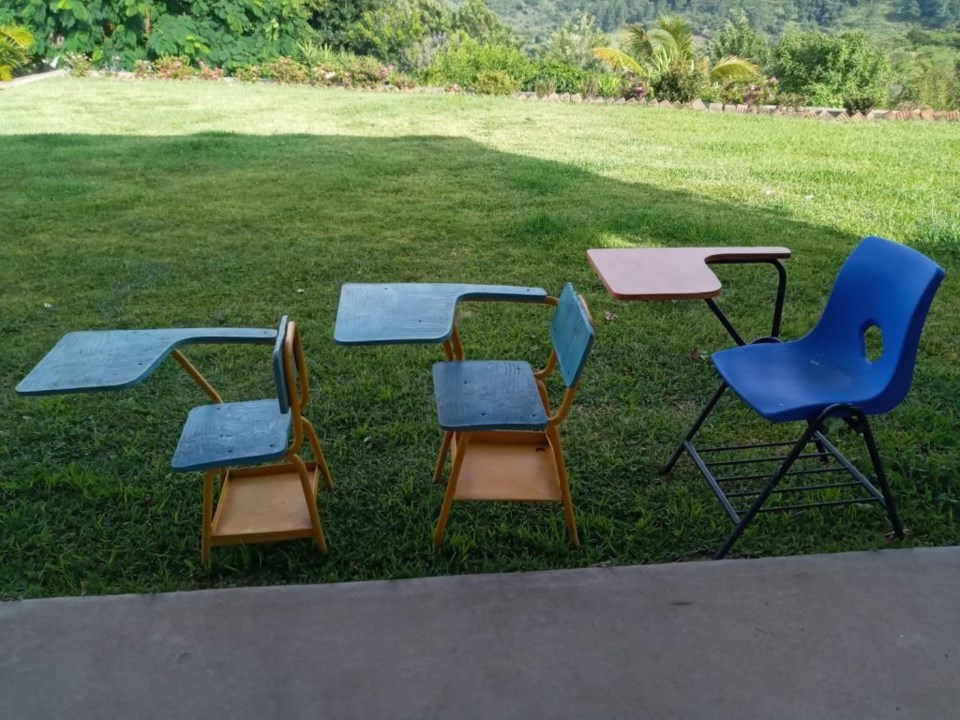
Their journey together has taken Ted van der Zalm and his wife Miriam in different directions since they first met as young adults volunteering in Africa, but each step of the way has been motivated by their deep faith and their dedication to improving the lives of the poorest of the poor.
For almost 20 years, their goal has been to provide clean, fresh water to the impoverished people who live in the mountains of the Jalapa area of Guatemala.
Since 2004, the couple have travelled to Guatemala each winter, taking their children with them — their first child that first year, until they had five kids traveling with them. In the early years they took their family and equipment with them in a pick-up truck, set up tents, and learned quickly how desperately clean water was needed.
It’s something we in the western world take so much for granted, says van der Zalm. He has seen women leave their very basic homes in the mountains, baby on their back, 20-litre bucket on their heads, often a couple of two- or three-year-olds walking with them down the hill to their water source, and then back up again, collecting firewood along the way, buckets heavy with water on their heads.
“They do this two or three times a day, every day,” he says, until he is able to deliver water to their door, life-changing not only for those families and their children, but the generations to come. He doesn’t talk about how many wells he’s drilled — the much more important number to him is the 90,000 people who now have easy access to clean, fresh water.
Van der Zalm has learned a lot over the years, and the work he does has evolved, but always with the same goal, to see clean water delivered to as many people as possible.
The need for much larger, expensive drilling rigs became obvious early in his trips to Guatemala, where the wells he drills are often 1,000 feet deep, through hard volcanic rock. Each one is a huge and costly challenge, but made possible by generous donations and fundraisers, mostly from the Niagara region. One well was recently funded fully by the NOTL Rotary Club, he says.
The van der Zalms have developed a large support group of volunteers, and a program to include Niagara high school students, as much to teach them about helping the needy and also appreciating their own good fortune at being born in a developing country. At this point in the pandemic that is on hold, and with insurance costs, may not be possible to continue.
They now have a permanent camp, Esperanza, or hope, returning to it each year. No more driving their truck — they are able to fly to their destination and find their equipment waiting for them.
They typically leave for Guatemala in January, and return home at the end of May, when the rainy season starts, and van der Zalm counts on drilling three wells during that time. It may not sound like a lot, but there is so much more to the job than drilling. Once he reaches clean water through the hard rock, there is still infrastructure required that involves pumps, generators and housing to protect them, and pipes to get the water up to the highest point, to be stored in a huge cement tank. From there, more infrastructure is required to take the water back down the hill, to be delivered to the homes along the way. No more spending most of their day walking to get water for the women who are fortunate enough to live near a well drilled by van der Zalm, and the hard-working men of the village who commit to helping with the construction of the water system he is giving them.
“We finance the equipment for the well, the generators, and a large main trunk to the cistern. The community has to commit to running 30 to 40 kilometres of trenching pipe underground to their homes. The community needs to put in some sweat equity. They can’t finance it, but they can do the manual labour that’s necessary. And they work hard, because they’ve worked hard all their lives.”
He and his volunteers have cexpanded their work to include medical clinics and schools, and instead of shipping discarded desks from Niagara school boards, often in rough shape, he has set up a program to pay for young Guatemalans to learn welding, so they can make the metal frames for desks, with seats and arms made out of recycled plastic bottles.
Education is paramount to van der Zalm, and he lives by the proverb that if you give a man a fish, you feed him for a day, teach a man to fish, and you feed him for a lifetime.
He also quotes a biblical miracle, the feeding of the 5,000, to describe the experience he and Miriam had when the world shut down in March, 2020.
As usual, they were in Guatemala, their well-drilling underway.
All of their kids but the youngest were at home in Canada attending university. Travel was becoming impossible, the Guatemalan government had shut down the country, and Ted and Miriam had a decision to make, without having any idea what this new coronavirus would bring. They got their daughter on a plane home, and decided they would register with the Canadian embassy, stay at their camp, and do what they could do.
“We had committed to our projects and to people who had asked for our help,” he says. “The needs of the poor don’t take a vacation.”
Instead of returning home in May, they were there until November.
And instead of drilling wells, their attention was turned to feeding people, not a job they were prepared for.
People in the mountain villages soon began coming to their camp looking for food, because any manual labour they depended on for money had come to a halt, and they had nothing to feed their families.
“They caught us off-guard,” said van der Zalm. “We were not equipped to be a hand-out station. The need seemed too huge for us.” But they were there to help people, and decided they couldn’t turn them away.
“In the story of feeding the 5,000, instead of sending them away, Jesus told them to sit down, and a miracle happened. I didn’t have Jesus beside me, but I had Facebook.”
He went on social media, asking for help, and the money started to arrive from home. With it they were able to buy the equipment and food they needed to set up a food station, taking it up the mountain where villagers could reach them. He would get up at 3:30 a.m. each day to buy food, and had help from Guatemalan women in the villages, who cooked for them. They were serving 2,100 people daily. Van der Zalm also talked to the owner of a transit company, who provided three buses and drivers, to transport those living too far from the food station to walk.
The government of the region gave van der Zalm and his food program an exemption to allow him and his helpers to move around, calling what they were doing an essential service.
“It’s still unbelievable to me how it all came together,” he says.
“It was definitely a step outside my comfort zone, but I saw a biblical story come to life. It was a fabulous effort, Guatemalan people helping Guatemalan people.”
It took about three months before the country gradually opened up, men were able to get back to work, the food station was phased out, and van der Zalm was able to fulfill his well-drilling commitments.
To come home in November and hear people complaining and pushing back over masks and vaccines, he says, “blew me away. The Guatemalans said, ‘that’s all we have to do? Wear masks? We can do that.’ They’re used to so much hardship, that was nothing for them.”
After losing a season of well-drilling at home, work that supports his family, van der Zalm returned to Guatemala in January, 2021 on his own, but just stayed until April, relying on locals to help him.
Now, he’s looking forward to returning for a full season, January to May, but without the fundraisers he’s accustomed to financing his work, he is turning to the community to help.
He has relied in the past on change collected in a trailer, with which he visited Niagara elementary schools, to teach local kids about helping those in need; and huge, well-orchestrated fundraisers, such as golf tournaments and an annual Passion event, with wine, food and music.
Those and other fundraisers have been put on hold during the pandemic, and the need is greater than ever, he says.
He plans to set up the infrastructure to begin fabricating desks when he gets to Guatemala, allowing the young men who have learned welding to use their trade, and of course he has wells to drill.
Hard work cuts down on the costs, but there is still money required. Fortunately Wells of Hope has an excellent reputation for how carefully money is spent, and a large community of supporters who believe in van der Zalm and the work he does, many of whom have seen it first-hand.
To learn more, or to donate, visit https://www.wellsofhope.com/get_involved/donate/
Or contact Scott Maxwell, who finds the financial support at home to keep the work going in Guatemala. Cheques can be mailed to 174 Cole Crescent, Niagara-on-the-Lake, ON L0S 1J0. Or call Maxwell at 289-313-7109.


